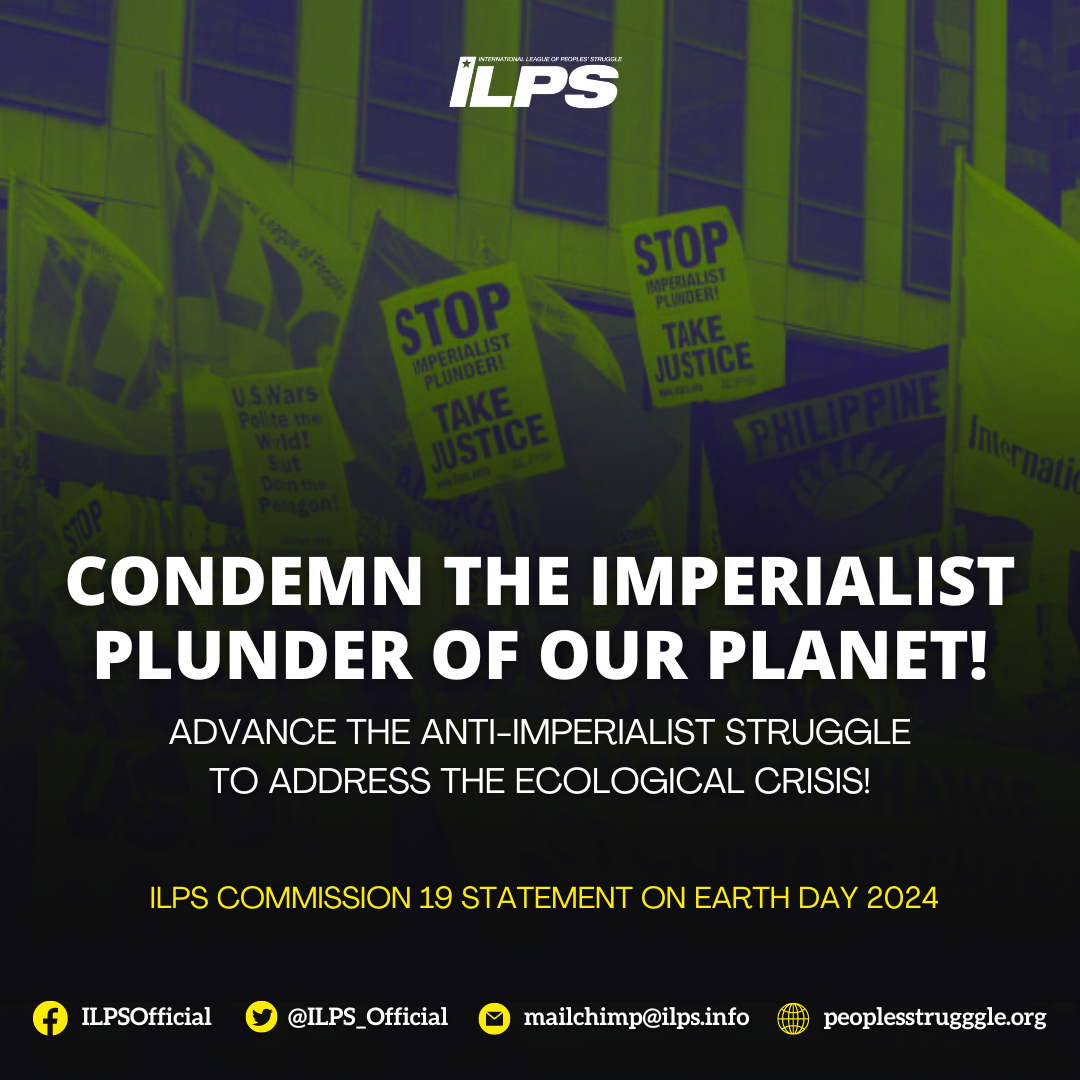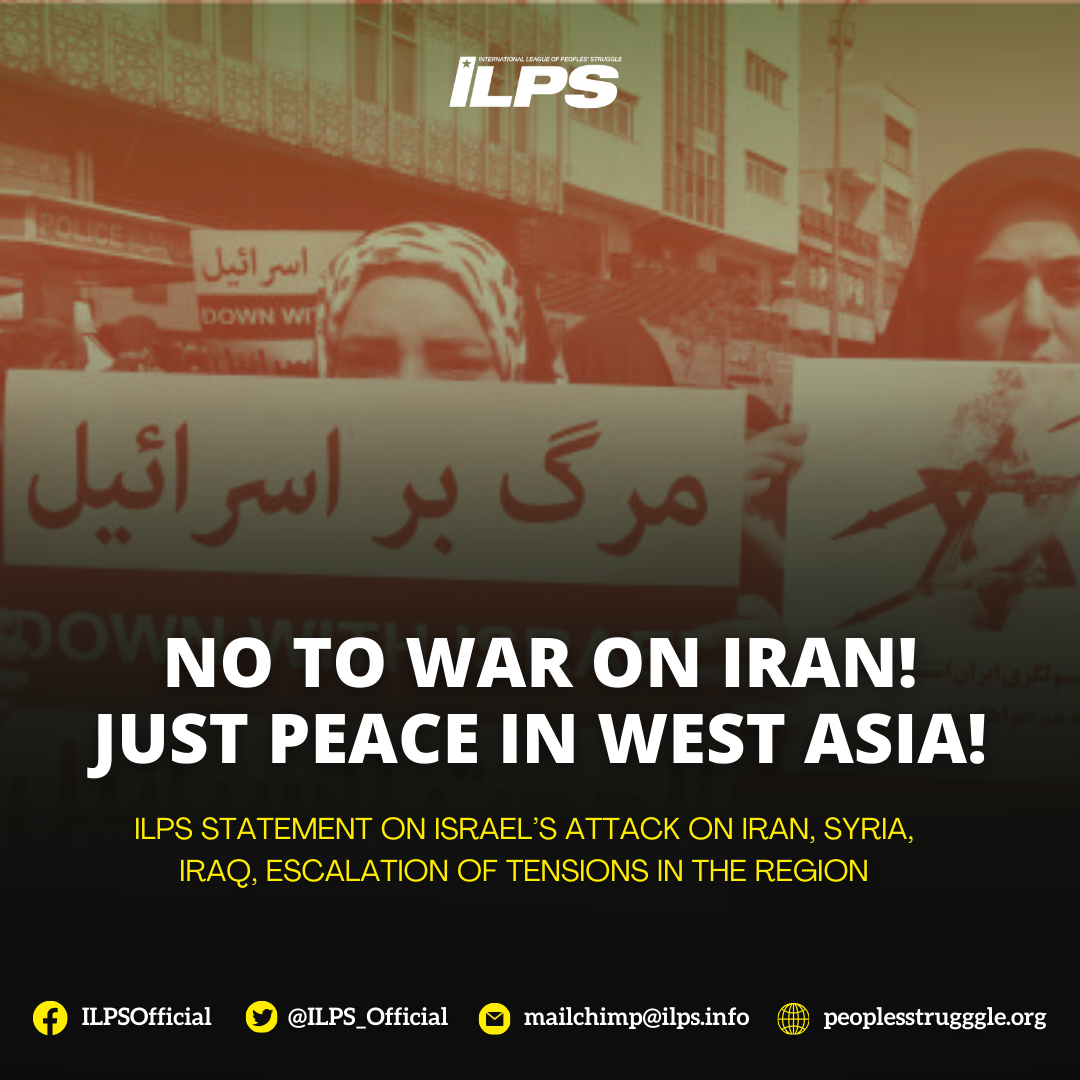
On 24 June 2022, the world was shocked by horrific images from Melilla, a Spanish enclave on the African continent, which along with the other enclave, Ceuta, in northern Morocco, has been claimed for years by the Kingdom of Morocco.
Thousands of young migrants, mostly from Sub-Saharan African countries and Sudan, stormed the barbed wire fences of Melilla to cross them and reach Europe. This attempt, which was marked by crowding, pushing and shoving, was fiercely repressed by the Spanish and Moroccan forces installed at the border of the two countries. At least 37 deaths and many serious injuries were recorded among the migrants. The repressive forces showed extreme barbarity, kicking or beating the injured, handcuffing others, using tear gas and blank bullets and failing to provide adequate assistance to the injured.
ILPS AFRICA /WEST ASIA shares the grief of the bereaved families and wishes a speedy recovery to the injured.
ILPS AFRICA/WEST ASIA strongly condemns this state violence and demands that a serious investigation be carried out including the participation of migrant and refugee associations.
Responsibility must be established so that all those directly or indirectly involved in this state crime – a crime against humanity – be punished.
The Melilla massacre led the Chairperson of the African Union (AU) Commission to tweet on 26 June 2022: “I express my deep emotion and concern about the violent and degrading treatment of African migrants seeking to cross an international border between Morocco and Spain”.
“I call for an immediate investigation into this case and remind all countries of their obligations under international law to treat all migrants with dignity and to prioritize their safety and human rights, while curbing any excessive use of force.”
ILPS members in AFRICA/WEST ASIA call on the AU to make a firm commitment to ensure that this investigation is not buried in political/diplomatic maneuvres that would only serve to further discredit it in the eyes of the African people.
This is an opportunity to denounce the hypocrisy of the G7 which, meeting from 26 to 28 June 2022 in Elmau, Germany, two days after the tragedy in Melilla, did not consider it useful to express its opinion on these painful events. Indeed, how can these capitalist countries, considered to be the most powerful in the world, “be moved by the continuous deterioration of the political and social situation in the Sahel, respect for human rights and humanitarian law, protection of refugees (see Communiqué of the G7 Leaders)” and not speak about the tragedy of Melilla which has moved the whole world? What contempt for the “smaller countries” of this world, which is all the more unacceptable given that African heads of state took part in the meeting of 26-28 June 2022?
ILPS AFRICA/WEST ASIA recalls that this tragedy in Melilla comes on top of many other tragedies, such as the one in Ceuta and Melilla in October 2005, with 15 deaths, or the one in Lampedusa, an Italian island near Sicily, in October 2013 with more than 300 deaths following the capsizing of a boat carrying migrants and refugees. In this macabre tally, we must not forget the many migrants who have been missing for years in the Sahara desert or recently, on 26 June 2022, the deaths of 15 Gambian, Senegalese, Nigerian and Guinean nationals (Bissau and Conakry) in Kafountine, Senegal, including many who were burned or went missing, following the explosion of their boat on its way to Spain.
ILPS AFRICA/WEST ASIA considers that these tragedies must be largely traced to the repressive policies of the European Union which must be denounced and opposed. These policies are manifested by:
The European Union has a number of barriers to the entry of Africans into Europe, which is not the case for European nationals who can to enter Africa with relative ease; the establishment of the EU agency ‘FRONTEX’ (External Borders) to regulate its borders. It benefits from the complicity of some African governments who have accepted the externalization of European borders in Africa through controls on African coasts by Spanish boats assisted by African forces (police, navy), information sharing on data, etc.
However, these repressive policies do not prevent desperate young people from continuing to try their luck.
It should be recalled that contrary to popular belief, the majority of migration in Africa remains 80% intra-African migration and is not towards Europe.
It appears that young Africans are looking for every means to leave their country for another African country or the continent in the hope of better living conditions and helping the destitute families they leave behind. The despair of young people is explained by the state of poverty, corruption, political conflicts, climate change and war in most African countries, where health and education are in a deplorable situation. The economic, mining and financial wealth are under the control of Western multinationals, which prevents the continent from taking its destiny in hand. Covid-19 and the war in Ukraine have amplified the crisis in the countries of the South.
ILPS AFRICA/WEST ASIA calls for broad solidarity with migrants and refugees, victims of the neoliberal policies that drive them to seek to migrate.
These neoliberal policies are not only experienced by migrants but also by nationals who suffer various forms of exploitation and oppression. It is therefore a question of organising, of fighting so that peoples and nations recover their independence and freedom which can guarantee their self-development and fulfillment and allow them to stay at home.
In this sense, the growing awareness of African youth to denounce and fight imperialism on the continent must be encouraged.
18 JULY 2022



